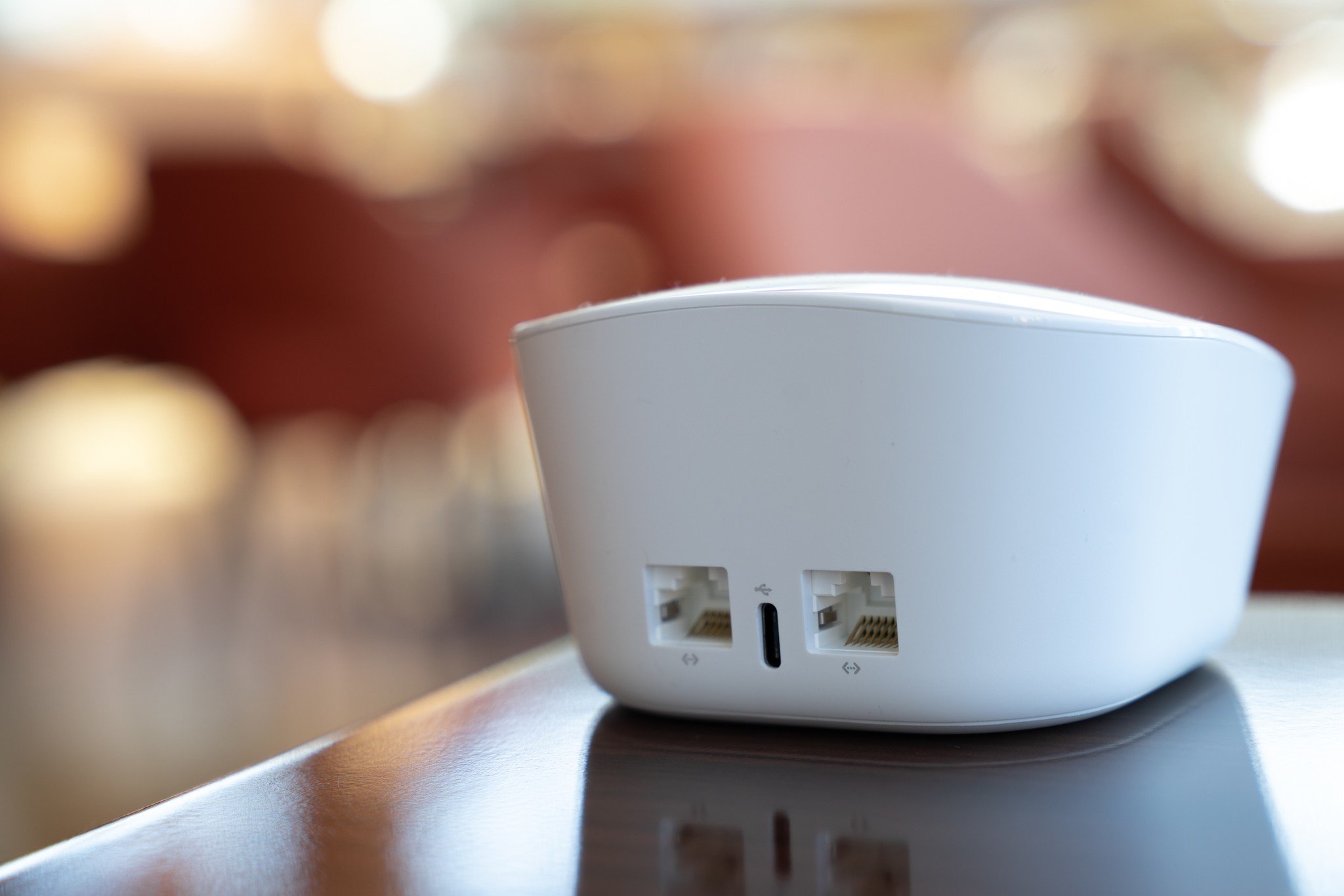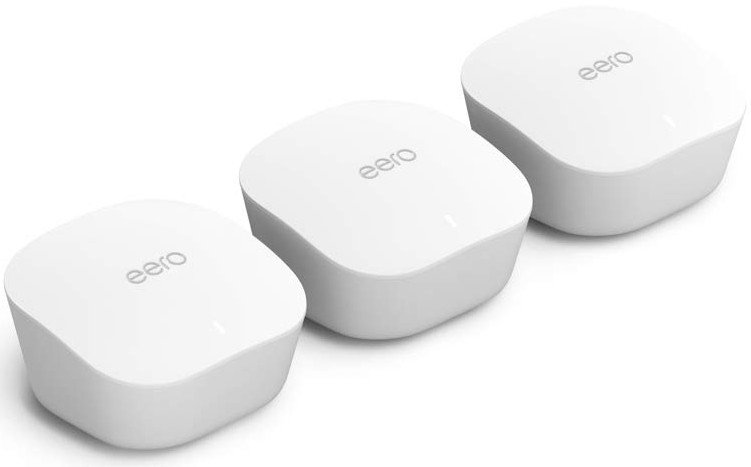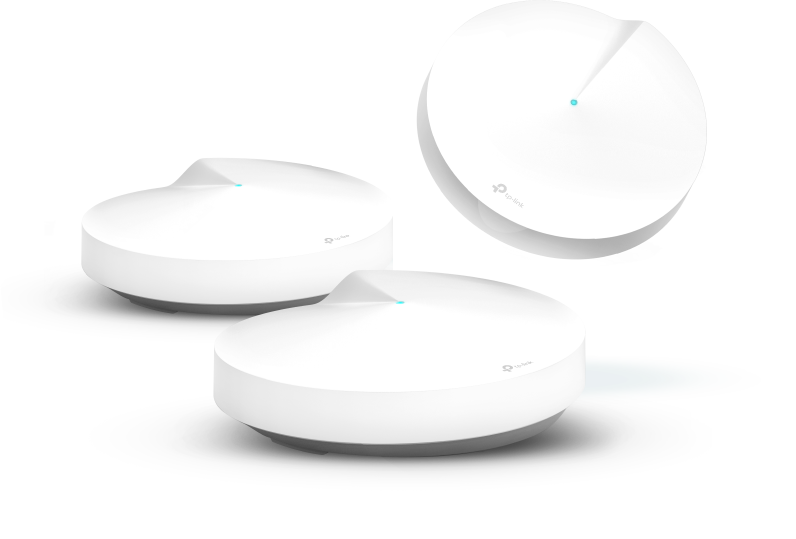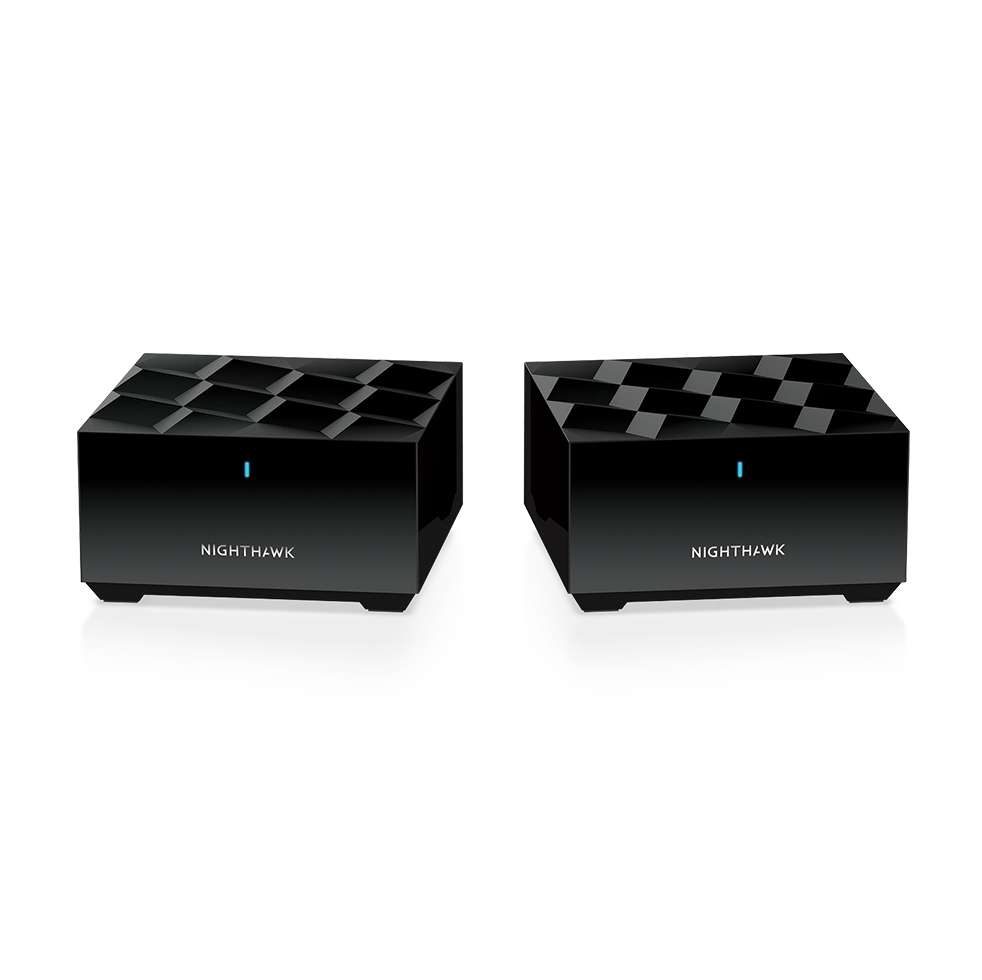Which router should you get instead of Google Wifi?
Google Wifi put a name you know and see every day on the most central part of your home network. If you're looking for a mesh Wi-Fi option there are a lot of options available, whether you just need a little more coverage or want to completely overhaul your network with fast Wi-Fi 6 technology. Eero is the best overall alternative to Google Wifi if you like the features but want something with more expansion and a sleek modern design.
Best Overall: Eero
Eero aims to keep things simple and easy with its main third-generation base router, which offers 802.11ac speeds that aim to be enough for standard usage, though top speed will be lower than many other mesh systems. This Eero version is recommended for connections under 350Mbps and should be more than enough for even 4K video streams. If you want to stick with the Eero line but need more speed, the Eero Pro router will be a better fit.
Even so, with two Ethernet ports per router, you should be able to connect all of your devices. Eero can be used to expand your existing Eero network and will work with older Eero models as well as the faster Eero Pro and the compact Eero Beacon.
Pros:
- Simple setup
- Subtle and compact design
- Two Ethernet ports per router
- Works with existing Eero setup
Cons:
- Only dual-band
- Not as fast as Eero Pro
Best Overall
Eero
Simple mesh coverage
Eero keeps things simple with enough speed for most people and a simple and small housing that you can expand.
Faster Google: Nest Wifi
If you like Google's software and features, Nest Wifi improves on that speed and coverage while keeping Google's great support. Compared to Google WiFi's AC1200 speeds, Nest Wifi takes it up to AC2200 with a dual-band connection. Each Nest Wi-Fi router comes with two Ethernet ports on each router model. You also get an impressive 2,200 square feet of coverage with each router.
Your Nest Wifi network can be expanded with a Nest Wifi point or a Google Wifi router, both of which run at AC1200 speed. Unfortunately, if you want to keep the speed high and consistent across the entire network, you can combine only Nest Wifi routers in your mesh. It is nice to have the option to expand in areas that don't require as much speed with the slower and cheaper units.
Pros:
- Fast AC2200 speed
- Two Ethernet per router
- Works with Nest Wifi point and Google Wifi
- Prompt Google security updates
Cons:
- Expensive
- Large housing
Faster Google
Nest Wifi
Expand your Nest home with mesh Wi-Fi
Nest Wifi keeps the great app and features you expect from Google with faster speeds and greater coverage.
Best Value: TP-Link Deco M5
The TP-Link Deco M5 delivers solid speeds and competitive coverage at a great price. It also has a great compact appearance with a circular puck shape in white. Each unit has two Ethernet ports, which make it easy to keep your entire network connected, even wired devices. Wi-Fi speeds are fairly typical with a dual-band setup allowing for 867Mbps on the 5GHz band plus 400Mbps on the 2.4GHz band adding up to AC1300 speeds.
The Deco M5 is compatible with the other Deco devices allowing plenty of options to expand your mesh. Three routers together will cover up to 5,500 square feet depending on your home's design and the amount of interference.
Pros:
- Great price
- Works with other Deco models
- Two Ethernet ports per node
Cons:
- Only dual-band
- Not as fast as other routers on this list
Best Value
TP-Link Deco M5
Great value mesh coverage
The Deco M5 from TP-Link has fast speeds for a great price with wired ports on each node.
Great Flexibility: Netgear Orbi RBK13
Netgear's Orbi line was one of the first consumer mesh systems released and it has a system that will fit just about any setup no matter how much speed or ports you need. The entry-level RBK13 system offers AC1200 speeds achieved with up to 400Mbps on the 2.4GHz band plus 866Mbps on the 5GHz band. You'll never be able to access either of these maximums but for streaming and normal Wi-Fi usage, this router will be able to deliver more than enough speed. If speed is a major concern for you, consider a faster Orbi such as the tri-band RBK50 system.
If you're after consistent Wi-Fi with easy expansion and routers small enough to blend in, the RBK13 system comes with a base router and two additional satellites. The base router has a single Ethernet port for wired connectivity with no additional Ethernet ports on the mesh satellites. This system really shines for a fully wireless home.
Pros:
- Great app and options
- Compact design
- Great speeds for normal usage
- Easy expansion
Cons:
- Only dual-band
- Only one Ethernet port
Great flexibility
Netgear Orbi RBK13
Huge satellite ecosystem
The Orbi line was one of the first consumer mesh systems around and is a great value with plenty of speed and great controls.
Compact Wi-Fi 6: Netgear Nighthawk MK62
Similar to the entry-level Orbi system from Netgear, the Nighthawk MK62 adds Wi-Fi 6 technology and a slick black housing. At AX1800 speeds, it's not as fast as many other Wi-Fi 6 capable routers or even some fast 802.11AC routers, but it does manage to bump up the speed to 600Mbps on the 2.4GHz band and 1,200Mbps on the 5GHz band. You also get some of the other features of Wi-Fi 6 including better support for multiple devices which can help with a well-connected smart home.
This system has only one Ethernet port on the base router so you will need a separate switch if you wish to connect more than one wired device. For a wireless network, this system will be able to deliver solid speeds with improvements ready when more devices support Wi-Fi 6 connectivity.
Pros:
- Wi-Fi 6 connectivity
- AX1800 speed
- Compact design
- Great app and options
Cons:
- Slower than other Wi-Fi 6 systems
- Only one Ethernet
Compact Wi-Fi 6
Netgear Nighthawk MK62
Wi-Fi 6 connectivity for the average user
If you want to upgrade to Wi-Fi 6, the Nighthawk MK62 offers plenty of speed in a compact package.
Simple Setup: AmpliFi Instant
AmpliFi Instant is a compact and sleek looking router sporting white plastic housing with no antennas. With only one Ethernet port, this router is much more focused on delivering usable Wi-Fi to your home rather than providing the basis for an entire home network. If you are looking for something simple and don't need to wire up more than one device, this can be a great fit. Speeds come in at 867Mbps on the 5GHz band and 300Mbps at 2.4GHz.
The Instant can work alone and will work well for a small home or apartment with little interference but for most houses, two or more are recommended. AmpliFi estimates that a single router will be able to cover approximately 2,000 square feet, but considering that elements like thick walls can reduce that, most people will have a better experience with two.
If you are looking to expand your AmpliFi network, this router is compatible with the AmpliFi HD router as well as the AmpliFi MeshPoint HDs. The AmpliFi Instant can also be used to expand an existing AmpliFi mesh setup based one either the AmpliFi HD or another AmpliFi Instant.
Pros:
- Small size
- Dedicated display
- Compatible with other AmpliFi mesh points
Cons:
- Only dual-band
- Only one Ethernet port
Simple Setup
AmpliFi Instant
Status with just a glance
The AmpliFi Instant sets itself apart with a built-in display and it works easily with the AmpliFi HD router and MeshPoints.
Bottom line
The first goal of a mesh network is flexibility. Mesh networks are designed to grow to fit different situations with intelligent node placement, and when needed, the easy addition of new nodes. Speed is supposed to be good enough for anything the average user can throw at the network, and for most people, this rarely exceeds 100Mbps including 4K video streaming.
Eero keeps its eye on the prize offering an easy to understand setup procedure with plenty of options for expansion. Whether you want to simply throw more Eeros into the mix or add a more specialized Eero Beacon, it will work together. If you are looking for a great alternative to Google Wifi, the third generation Eero Mesh Wifi System, is one of the best mesh experiences available.
Credits — The team that worked on this guide
![]()
Samuel Contreras When Samuel is not writing about networking and carriers, he spends most of his time researching computer components and obsessing over what CPU goes into the ultimate Windows 98 computer. It's the Pentium 3.
from Android Central - Android Forums, News, Reviews, Help and Android Wallpapers https://ift.tt/2wJLgPQ
via IFTTT













ليست هناك تعليقات: